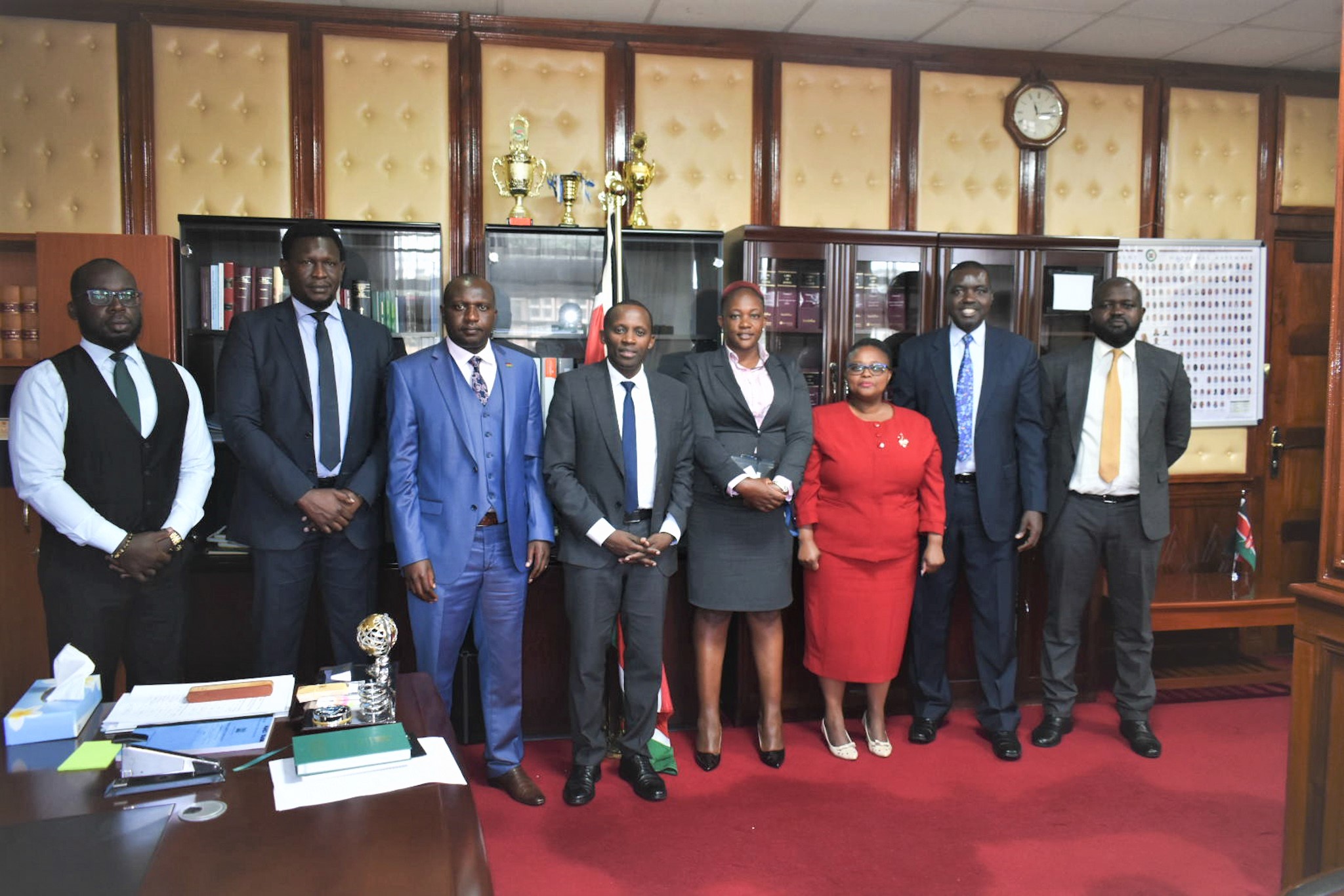
The Media Council of Kenya (MCK) has reiterated the critical role of media in linking the public to legislative matters.
MCK CEO Mr David Omwoyo who met the Clerk of the National Assembly Mr Samuel Njoroge this morning noted that access to information is therefore pertinent to enable media workers to disseminate the right information.
“As the Council, we feel that its important for journalists to get access to information from national institutions such as the National Assembly to enable them report accurately on matters discussed in the house”, said Mr Omwoyo.
He reinforced the importance of accrediting journalists attached to Parliament, stating that collaboration between the institutions would address double accreditation and hasten the verification process.
“There is need to set up a joint verification system for journalists reporting from Parliament to reduce the many layers of accreditation. This will ensure journalists can report from Parliament without feeling like they are being subjected to too many restrictions,” he said.
While appreciating the high number of community and vernacular media in the country, Mr Omwoyo called for a balance between ensuring that both legacy and vernacular media have access to the August House in the interest of serving the public.
Mr Njoroge acknowledged the need for a responsive approach to the high number of requests by journalist to access Parliament.
“Parliament is often inundated with many requests from journalists who wish to cover parliamentary proceedings. We are continuously looking for ways of balancing between the incoming requests and available space in a fair and transparent manner”, said Mr Njoroge.
He noted that both parliamentary journalists and staff needed regular engagements on issues affecting their professional working relationship. He also emphasised the need to train journalists and the media relations team from Parliament to enhance a better working relationship.
“There is need to train journalists covering Parliament to ensure they provide fair, objective and balanced coverage on the house proceedings. We will train them on the basics of Parliament which is key to growing their understanding of how the house works besides adding value to the stories that the public consumes on Parliament”, said Mr Njoroge.
The official commended the work done by some journalists whom he said went beyond and above to acquire more information and undertake research on areas they sought clarification on.
The two institutions agreed to conduct the trainings early next year while the accreditation process of journalists covering Parliament will begin during the recess.
The Media Council of Kenya (MCK) has reiterated the critical role of media in linking the public to legislative matters.
MCK CEO Mr David Omwoyo who met the Clerk of the National Assembly Mr Samuel Njoroge this morning noted that access to information is therefore pertinent to enable media workers to disseminate the right information.
“As the Council, we feel that its important for journalists to get access to information from national institutions such as the National Assembly to enable them report accurately on matters discussed in the house”, said Mr Omwoyo.
He reinforced the importance of accrediting journalists attached to Parliament, stating that collaboration between the institutions would address double accreditation and hasten the verification process.
“There is need to set up a joint verification system for journalists reporting from Parliament to reduce the many layers of accreditation. This will ensure journalists can report from Parliament without feeling like they are being subjected to too many restrictions,” he said.
While appreciating the high number of community and vernacular media in the country, Mr Omwoyo called for a balance between ensuring that both legacy and vernacular media have access to the August House in the interest of serving the public.
Mr Njoroge acknowledged the need for a responsive approach to the high number of requests by journalist to access Parliament.
“Parliament is often inundated with many requests from journalists who wish to cover parliamentary proceedings. We are continuously looking for ways of balancing between the incoming requests and available space in a fair and transparent manner”, said Mr Njoroge.
He noted that both parliamentary journalists and staff needed regular engagements on issues affecting their professional working relationship. He also emphasised the need to train journalists and the media relations team from Parliament to enhance a better working relationship.
“There is need to train journalists covering Parliament to ensure they provide fair, objective and balanced coverage on the house proceedings. We will train them on the basics of Parliament which is key to growing their understanding of how the house works besides adding value to the stories that the public consumes on Parliament”, said Mr Njoroge.
The official commended the work done by some journalists whom he said went beyond and above to acquire more information and undertake research on areas they sought clarification on.
The two institutions agreed to conduct the trainings early next year while the accreditation process of journalists covering Parliament will begin during the recess.